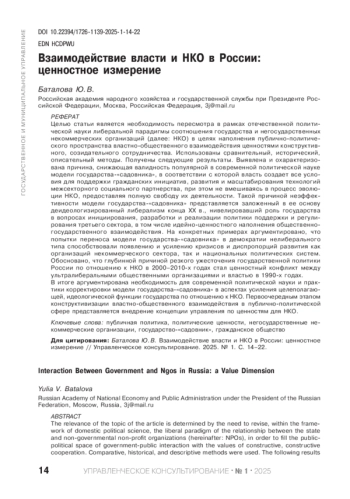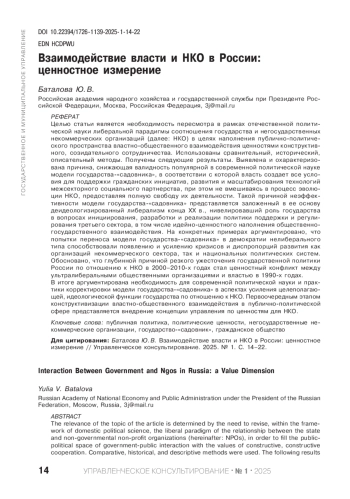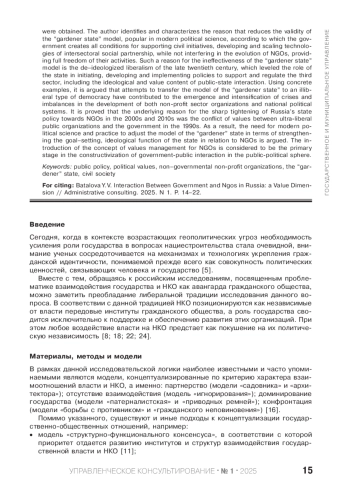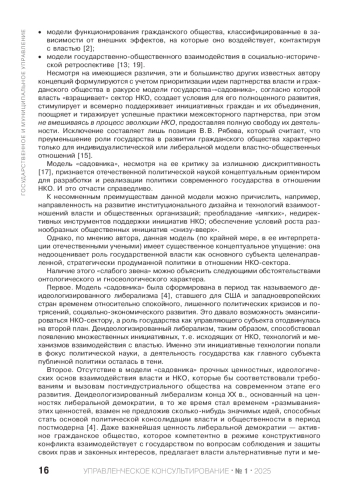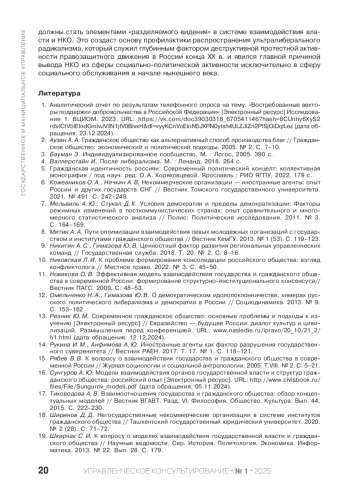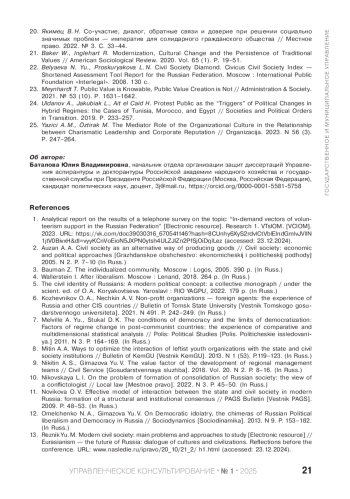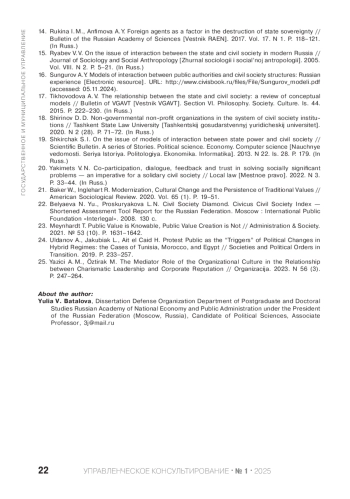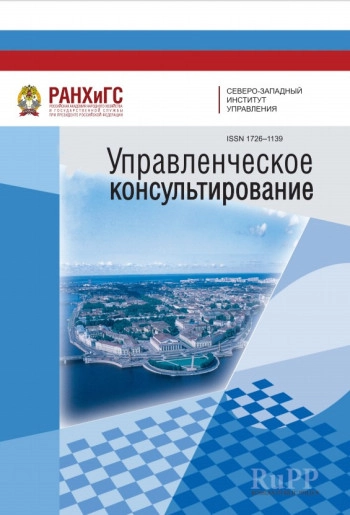Целью статьи является необходимость пересмотра в рамках отечественной политической науки либеральной парадигмы соотношения государства и негосударственных некоммерческих организаций (далее: НКО) в целях наполнения публично-политического пространства властно-общественного взаимодействия ценностями конструктивного, созидательного сотрудничества. Использованы сравнительный, исторический, описательный методы. Получены следующие результаты. Выявлена и охарактеризована причина, снижающая валидность популярной в современной политической науке модели государства-«садовника», в соответствии с которой власть создает все условия для поддержки гражданских инициатив, развития и масштабирования технологий межсекторного социального партнерства, при этом не вмешиваясь в процесс эволюции НКО, предоставляя полную свободу их деятельности. Такой причиной неэффективности модели государства-«садовника» представляется заложенный в ее основу деидеологизированный либерализм конца XX в., нивелировавший роль государства в вопросах инициирования, разработки и реализации политики поддержки и регулирования третьего сектора, в том числе идейно-ценностного наполнения общественно-государственного взаимодействия. На конкретных примерах аргументировано, что попытки переноса модели государства-«садовника» в демократии нелиберального типа способствовали появлению и усилению кризисов и диспропорций развития как организаций некоммерческого сектора, так и национальных политических систем. Обосновано, что глубинной причиной резкого ужесточения государственной политики России по отношению к НКО в 2000-2010-х годах стал ценностный конфликт между ультралиберальными общественными организациями и властью в 1990-х годах. В итоге аргументирована необходимость для современной политической науки и практики корректировки модели государства-«садовника» в аспектах усиления целеполагающей, идеологической функции государства по отношению к НКО. Первоочередным этапом конструктивизации властно-общественного взаимодействия в публично-политической сфере представляется внедрение концепции управления по ценностям для НКО.
The relevance of the topic of the article is determined by the need to revise, within the framework of domestic political science, the liberal paradigm of the relationship between the state and non-governmental non-pro t organizations (hereinafter: NPOs), in order to ll the publicpolitical space of government-public interaction with the values of constructive, constructive cooperation. Comparative, historical, and descriptive methods were used. The following results were obtained. The author identi es and characterizes the reason that reduces the validity of the “gardener state” model, popular in modern political science, according to which the government creates all conditions for supporting civil initiatives, developing and scaling technologies of intersectoral social partnership, while not interfering in the evolution of NGOs, providing full freedom of their activities. Such a reason for the ine ectiveness of the “gardener state” model is the de-ideologized liberalism of the late twentieth century, which leveled the role of the state in initiating, developing and implementing policies to support and regulate the third sector, including the ideological and value content of public-state interaction. Using concrete examples, it is argued that attempts to transfer the model of the “gardener state” to an illiberal type of democracy have contributed to the emergence and intensi cation of crises and imbalances in the development of both non-pro t sector organizations and national political systems. It is proved that the underlying reason for the sharp tightening of Russia’s state policy towards NGOs in the 2000s and 2010s was the con ict of values between ultra-liberal public organizations and the government in the 1990s. As a result, the need for modern political science and practice to adjust the model of the “gardener” state in terms of strengthening the goal-setting, ideological function of the state in relation to NGOs is argued. The introduction of the concept of values management for NGOs is considered to be the primary stage in the constructivization of government-public interaction in the public-political sphere.
Предпросмотр статьи
Идентификаторы и классификаторы
- УДК
- 32. Политика
